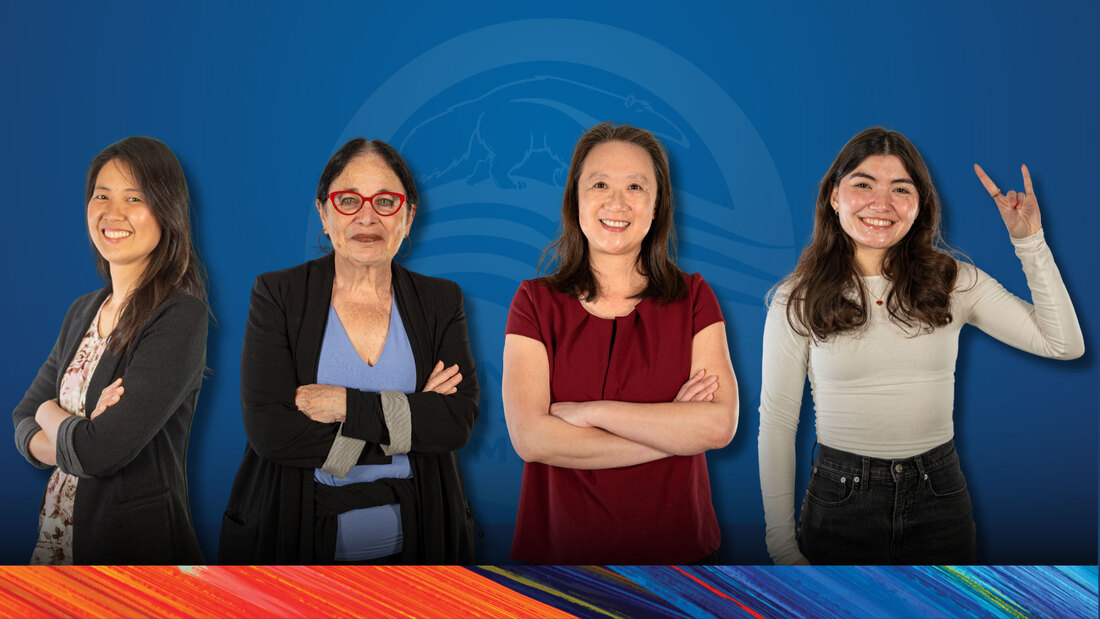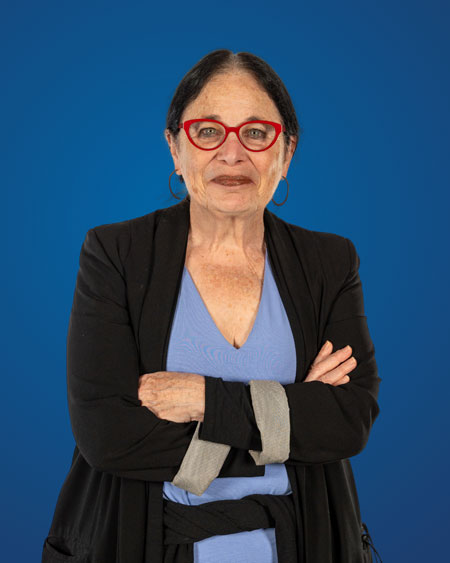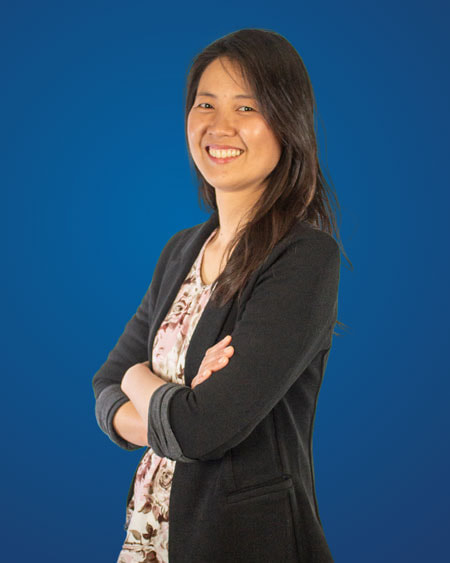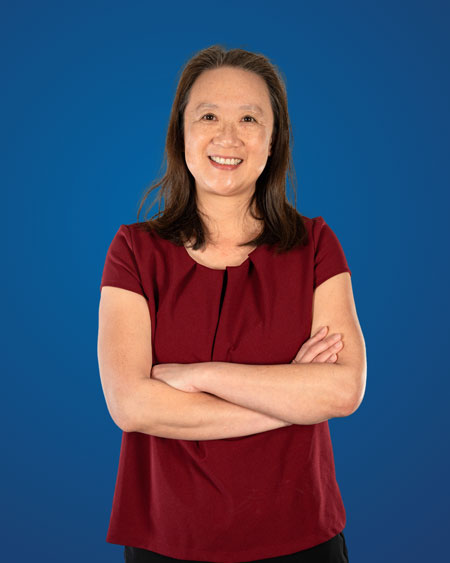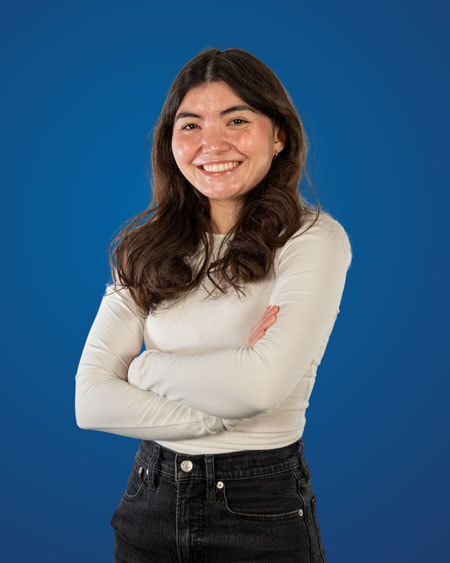Community through service: Women in the UC Irvine School of Education creating change
By Carol Jean Tomoguchi-Perez
March 14, 2024
A cognitive scientist fighting against gender stereotypes and bias in the 1960s and 1970s by co-founding an organization for women scientists. A researcher and educator working towards climate justice by investigating how climate civic engagement projects can transform students’ learning to action. A lecturer and supervisor equipping preservice teachers to critically evaluate and transform the curriculum and policies of the education system. A fourth-year undergraduate supporting other students through her peer leadership roles. Learn more about four inspiring women at the School of Education who are making a difference in their communities.
March 14, 2024
A cognitive scientist fighting against gender stereotypes and bias in the 1960s and 1970s by co-founding an organization for women scientists. A researcher and educator working towards climate justice by investigating how climate civic engagement projects can transform students’ learning to action. A lecturer and supervisor equipping preservice teachers to critically evaluate and transform the curriculum and policies of the education system. A fourth-year undergraduate supporting other students through her peer leadership roles. Learn more about four inspiring women at the School of Education who are making a difference in their communities.
|
Ensuring gender equity for women scientists
Judith Kroll, distinguished professor, began her career as a scientist in the 1960s at a time when gender stereotypes and bias against women training to be scientists was strong, she recalled. In 2001, Kroll and two colleagues, professors Randi Martin at Rice University and Suparna Rajaram at Stony Brook University, founded Women in Cognitive Science (WiCS, now known as WiCS+, to acknowledge gender inclusiveness) with the purpose of supporting the visibility of all who identify as women by ensuring that they are included on editorial boards, influential committees and visible positions in professional organizations. “Women in Cognitive Science was created as an effort to address gender equity issues in academia for women scientists,” Kroll said. |
“By the time WiCS was created in 2001, one might have thought that these issues would have been resolved but, of course, they continue on many levels. The goal of WiCS was to increase the visibility of women cognitive scientists and to provide support for early career women so that there would be a place where issues that are rarely discussed directly in academia could be discussed openly,” Kroll added.
After serving on the WiCS+ leadership team for 20 years, Kroll transitioned to the organization’s advisory board. “This is an organization that began on a shoestring with no funding and only a donation of a space to meet from the Psychonomics Society,” Kroll said. “Since 2001, there has been support from the National Science Foundation and a membership of over 1,000 people of all genders.”
Today, there are international branches of WiCS+ that have emerged, including WiCS Canada (2016) and WiCS Europe (2017).
Kroll’s research involves language learning and language use, as she explained: “I am a cognitive psychologist/cognitive neuroscientist who does research on how individuals learning and using more than one language juggle the two languages in their minds and brains.”
In 2023, Kroll and fellow professor and language researcher Elizabeth Peña became co-directors of the UCI branch of Bilingualism Matters, which serves as the organization’s first branch in California and on the West Coast.
After serving on the WiCS+ leadership team for 20 years, Kroll transitioned to the organization’s advisory board. “This is an organization that began on a shoestring with no funding and only a donation of a space to meet from the Psychonomics Society,” Kroll said. “Since 2001, there has been support from the National Science Foundation and a membership of over 1,000 people of all genders.”
Today, there are international branches of WiCS+ that have emerged, including WiCS Canada (2016) and WiCS Europe (2017).
Kroll’s research involves language learning and language use, as she explained: “I am a cognitive psychologist/cognitive neuroscientist who does research on how individuals learning and using more than one language juggle the two languages in their minds and brains.”
In 2023, Kroll and fellow professor and language researcher Elizabeth Peña became co-directors of the UCI branch of Bilingualism Matters, which serves as the organization’s first branch in California and on the West Coast.
|
Inspiring students through hands-on climate justice work
Nelly Tsai is a UCI CalTeach lecturer and School of Education research specialist. As a co-founder of the Interdisciplinary Climate Explorations course, which she teaches at Northwood High School in Irvine, Tsai is committed to climate justice, recognizing that the climate crisis disproportionately impacts those who are least responsible and most marginalized. “The goal of the course is to amplify youth voices and empower young leaders to act in the community to build a more just and sustainable future,” she said. Throughout her teaching career, Tsai has recognized that climate change is the defining challenge of her students’ lives, and she’s dedicated to instilling respect for environmental stewardship in her classroom and beyond. “I have always been passionate about place-based education in which learning takes place within a localized context,” she explained. “This makes learning matter for students and enhances their understanding of their community.” |
Tsai observes that climate justice work helps students connect with critical community issues and empowers them to enact changes using their knowledge.
An example of this, Tsai said, is the food system unit of the Interdisciplinary Climate Explorations class. Acknowledging that food waste reduction is one of the top three climate solutions, her students initiate system-level change by meeting with stakeholder groups, such as cafeteria and custodial staff. Next, they take on transdisciplinary leadership roles through a schoolwide food waste awareness campaign, collaborating with cafeteria staff to adopt more environmentally friendly packaging as well as conducting surveys among students to propose menu changes aimed at preventing food waste.
“Many students feel their classroom learning lacks real-world application,” Tsai said. “The (Interdisciplinary Climate Explorations) course bridges this gap by demonstrating the relevance of their studies to themselves and their community.”
As a component of the course this year, Tsai has worked with several undergraduate researchers to mentor seven students to conduct climate education research under the guidance of School of Education Associate Professor Hosun Kang. The team's research on reducing school food waste to mitigate the climate crisis was competitively selected for presentation at the upcoming American Educational Research Association conference in April.
As a result of her climate justice research, Tsai said: “I work to contribute and generate new knowledge on how we can culturally sustain students’ language, culture and identity through climate civic engagement projects that transform students’ learning to action.”
An example of this, Tsai said, is the food system unit of the Interdisciplinary Climate Explorations class. Acknowledging that food waste reduction is one of the top three climate solutions, her students initiate system-level change by meeting with stakeholder groups, such as cafeteria and custodial staff. Next, they take on transdisciplinary leadership roles through a schoolwide food waste awareness campaign, collaborating with cafeteria staff to adopt more environmentally friendly packaging as well as conducting surveys among students to propose menu changes aimed at preventing food waste.
“Many students feel their classroom learning lacks real-world application,” Tsai said. “The (Interdisciplinary Climate Explorations) course bridges this gap by demonstrating the relevance of their studies to themselves and their community.”
As a component of the course this year, Tsai has worked with several undergraduate researchers to mentor seven students to conduct climate education research under the guidance of School of Education Associate Professor Hosun Kang. The team's research on reducing school food waste to mitigate the climate crisis was competitively selected for presentation at the upcoming American Educational Research Association conference in April.
As a result of her climate justice research, Tsai said: “I work to contribute and generate new knowledge on how we can culturally sustain students’ language, culture and identity through climate civic engagement projects that transform students’ learning to action.”
|
Supervisors as change agents for preservice teachers
Evelyn Young is a lecturer and student teacher supervisor within the School of Education’s Master of Arts in Teaching + Credential (MAT) program. In her role, Young is inspired by the opportunity to center supervision as a core component of the teacher education preparation program. This led Young and her colleagues to create a UC Irvine supervisor professional learning community (PLC) this year, but the groundwork started back in 2018, when 13 MAT program directors, coordinators and supervisors from UC Davis, Irvine, Los Angeles, Santa Cruz and San Diego came together to conceptualize the development of a professional learning space for university supervisors. |
“The creation of this space emerged from an awareness that while supervisors occupy a pivotal position in supporting preservice teachers to bridge the theories learned in university coursework with classroom practice, most supervisors receive little or no professional guidance, and rarely are they given the opportunity to engage in critical discourse within a professionalized space,” Young said.
From there, the Supervisors of Teacher Education Network Team (STENT) was born. To date, STENT has hosted three annual conferences for university supervisors, attended by more than 200 California-based supervisors. Additionally, STENT is recognized as a professional organization under the California Council on Teacher Education.
One of the goals of STENT was to create professional learning communities for and by supervisors on each UC campus.
“When the idea to create a supervisor PLC group was pitched to (director of teacher education) Susan Toma-Berge and (UCI CalTeach master teacher) Kris Houston, they were eager to support it,” Young recalled.
The UC Irvine PLC group hosts two meetings each quarter with the first hour devoted to professional development, and inquiry-based discussions organized and facilitated by the supervisors slotted into the second hour.
In their latest meeting, the PLC group reviewed a second-grade preservice teacher’s lesson plan, and discussed how to incorporate environmental literacy into the science lesson.
“The most exciting part was to see the second graders connecting how plants make food to questions such as: Where do humans get our food? Where does our body get energy from? What kind of food is healthy for our bodies? And what kind of food do we see in our community?” Young said. “What this shows is the candidate developing a sense of agency to turn a typical lesson on the plant life cycle into one that incorporates environmental and climate literacy.”
This illustrates the impact that supervisors can have to help preservice teachers apply the theories into practice. Young said the goal of teacher education programs is to equip preservice teachers to critically evaluate the curriculum and the policies of our education system, so that they can transform – not reproduce – the system.
“Student teaching is a critical period of a preservice teacher’s growth and development, and supervisors play an important role in that,” she said.
From there, the Supervisors of Teacher Education Network Team (STENT) was born. To date, STENT has hosted three annual conferences for university supervisors, attended by more than 200 California-based supervisors. Additionally, STENT is recognized as a professional organization under the California Council on Teacher Education.
One of the goals of STENT was to create professional learning communities for and by supervisors on each UC campus.
“When the idea to create a supervisor PLC group was pitched to (director of teacher education) Susan Toma-Berge and (UCI CalTeach master teacher) Kris Houston, they were eager to support it,” Young recalled.
The UC Irvine PLC group hosts two meetings each quarter with the first hour devoted to professional development, and inquiry-based discussions organized and facilitated by the supervisors slotted into the second hour.
In their latest meeting, the PLC group reviewed a second-grade preservice teacher’s lesson plan, and discussed how to incorporate environmental literacy into the science lesson.
“The most exciting part was to see the second graders connecting how plants make food to questions such as: Where do humans get our food? Where does our body get energy from? What kind of food is healthy for our bodies? And what kind of food do we see in our community?” Young said. “What this shows is the candidate developing a sense of agency to turn a typical lesson on the plant life cycle into one that incorporates environmental and climate literacy.”
This illustrates the impact that supervisors can have to help preservice teachers apply the theories into practice. Young said the goal of teacher education programs is to equip preservice teachers to critically evaluate the curriculum and the policies of our education system, so that they can transform – not reproduce – the system.
“Student teaching is a critical period of a preservice teacher’s growth and development, and supervisors play an important role in that,” she said.
|
Paying it forward by advocating for and supporting peers
Alexis Maddox Harlos is a fourth-year, first-generation undergraduate student at UC Irvine, double majoring in Education Sciences and Psychological Sciences. For the past two years, Maddox Harlos has served as a resident advisor in Mesa Court for UCI Student Housing, a peer academic advisor for the School of Education and a peer assistant for a K-12 Multicultural Education course. This academic year, Maddox Harlos continued to pursue her passion for supporting fellow Anteaters and took on the role of peer life counselor for the UCI Counseling Center’s Creating Options and Overcoming Hurdles (COACH) program. Maddox Harlos credits her mother as her biggest source of inspiration and supporter, and she strives to offer a similar support system to others in the UC Irvine student community. She also finds inspiration working in peer leadership roles, where she can be a part of other students’ journeys. “I have had the privilege of watching students grow, learn and thrive in the spaces I have created,” she said. “I believe that every person has great potential, and it is gratifying to watch them achieve their goals and flourish throughout our time together, and support them through their journeys.” |
She feels a sense of accomplishment when she sees her impact on her community. As she prepares to pursue her Masters in Counseling with a specialization in School Counseling in Fall 2024, she has witnessed many of her current and previous students applying to step into the same peer leadership positions she has served in the past four years.
“They were able to see and experience my passion for helping others, and they are now inspired to do the same,” she said. “I am so excited to be passing down the torch and watching them continue to grow on their journeys and impact the future students of UCI.”
Ultimately, Maddox Harlos hopes to work with students as a high school counselor, where she can continue being a part of their journeys, provide support and watch them grow.
“It is crucial that one feels seen, heard, and supported and that their needs are being met and I have the chance to advocate and create change,” she said. “Success is holistic, and ensuring that they are thriving in all aspects of life allows for them to be themselves, grow, and achieve their dreams.”
“They were able to see and experience my passion for helping others, and they are now inspired to do the same,” she said. “I am so excited to be passing down the torch and watching them continue to grow on their journeys and impact the future students of UCI.”
Ultimately, Maddox Harlos hopes to work with students as a high school counselor, where she can continue being a part of their journeys, provide support and watch them grow.
“It is crucial that one feels seen, heard, and supported and that their needs are being met and I have the chance to advocate and create change,” she said. “Success is holistic, and ensuring that they are thriving in all aspects of life allows for them to be themselves, grow, and achieve their dreams.”

